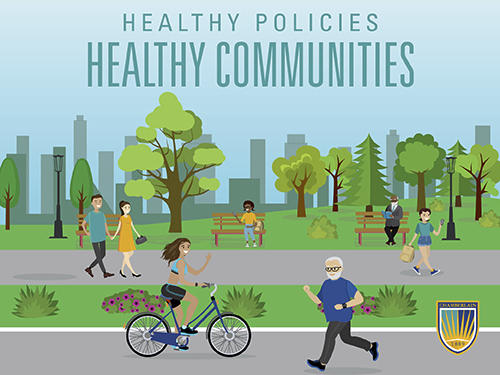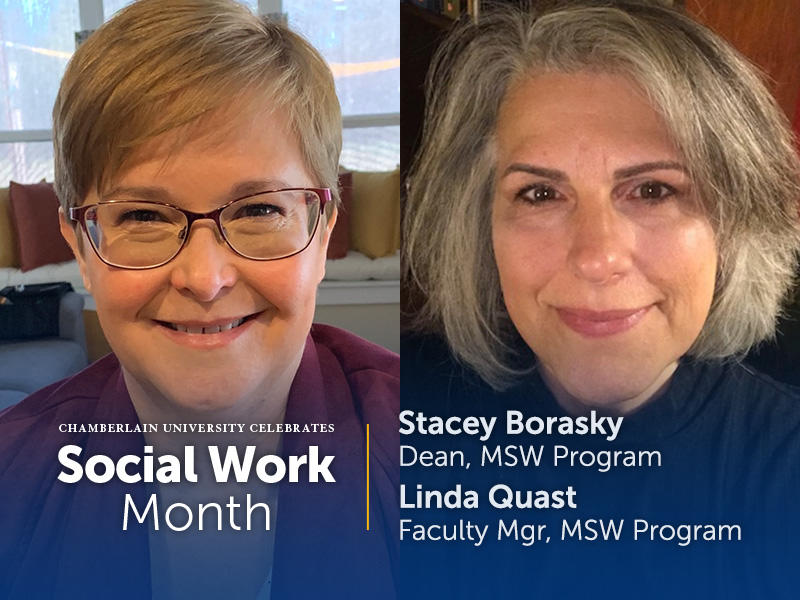Featured
Tags
Share
- Home / Blog / Health Professions / Healthy Communities Equals Healthy Individuals
Healthy Communities Equals Healthy Individuals

Q&A with MPH Faculty Member India Dorothy Rose, PhD, MPH, CHES
When we think about being healthy, we immediately think of eating more vegetables and exercising. What if access to healthy foods or places to be active weren’t available in the communities we live in? Chamberlain University Master of Public Health (MPH) degree program faculty member, India Dorothy Rose, PhD, MPH, CHES, found her passion influencing and researching the many aspects of healthy communities. We were excited to have a chat with her about how community health factors play an important role in an individual’s overall health and well-being.
Dr. Rose, share with us why you are passionate about healthy communities.
I am most passionate about healthy communities because creating them is an integral part of improving the public’s health. Ensuring individuals have access to healthcare services, public health education and other resources is key to creating these communities. Previous research indicates that an individual’s zip code can dictate their health outcomes. There is a growing body of evidence that one’s health is not only influenced by genetic and biological factors, but also social factors such as housing, employment opportunities, access to healthy food, quality education and safe and supportive environments. It’s important to address public health issues at the community level, because communities are where we live, work and play.
How has some of the work you’ve done directly impacted improving the health of communities?
Schools are an ideal setting for creating healthy communities because health and education work in tandem to influence individuals and their respective communities. Most of my public health research experience has focused on adolescent and school health. Schools play an integral role in improving the health of young people in our country. I have worked closely with school districts in the United States to improve their health education curriculum and increase the integration and collaboration between the education and health sectors. The outcomes of these efforts include increased collaboration, decreases in teen pregnancy, and decreases in rates of HIV and other STDs among young people.
Promoting healthy communities should be a priority for all. How can Chamberlain University play a role in promoting healthy communities?
Chamberlain University can best support healthy communities by continuing to provide a stellar education to our future public health leaders. Additionally, Chamberlain can continue to host community events focused on addressing important public health issues. Blood drives, hydration for the homeless, community walks and hosting health fairs are just a few of the many community events and initiatives Chamberlain coordinates to support healthy communities.
How do you believe Chamberlain’s Master of Public Health (MPH) degree program prepares students to impact the health of their communities?
Chamberlain’s MPH degree program prepares our future public health leaders to impact healthy communities by providing them with the knowledge and skills to tackle important public health issues. The program is designed to challenge and change the way students think about the health of population groups, while preparing students to lead projects and teams that implement solutions for a diverse range of public health programs and policies. It also teaches students how to work with diverse communities and populations throughout the world to promote healthy living and to prevent community health problems such as disease, poverty, health access disparities and violence. Our MPH degree program teaches our students how to become leadership change agents that improve health outcomes at the population and community level.
What would you say is your greatest hope for healthy communities?
My greatest hope is that all communities in every zip code have access to opportunities to be healthy. This can include access to walking trails, parks that are well-lit, and partnerships that encourage communities to take control of their health.
Tell us why you think the topic of healthy communities is being highlighted during National Public Health Week.
Healthy communities begets healthy individuals. If we build healthy communities, we collectively improve mankind. From a socio-ecological perspective, changes at the community level significantly impacts the organizational, interpersonal, and individual level. To improve the public’s health, we must address public health issues at the community level.
Interested in learning how you can contribute to improving the health of communities? Explore the exciting opportunities available through Chamberlain University’s Master of Public Health degree program. Request more information here.
By Sunita Rao-Fogt
More from Health Professions
Request More Information
To receive the Chamberlain University Program Guide, including associated career paths, please select a program of study.







